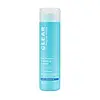Paula's Choice Daily Pore-Refining Treatment With 2% BHA Versus Paula's Choice Clear Extra Strength Anti-Redness Exfoliating Solution
What's inside
What's inside
 Key Ingredients
Key Ingredients

 Benefits
Benefits

 Concerns
Concerns

 Ingredients Side-by-side
Ingredients Side-by-side

Water
Skin ConditioningDipropylene Glycol
HumectantSalicylic Acid
MaskingPentylene Glycol
Skin ConditioningButylene Glycol
HumectantPolysorbate 20
EmulsifyingPalmitoyl Tripeptide-1
Skin ConditioningPalmitoyl Tetrapeptide-7
Skin ConditioningDipotassium Glycyrrhizate
HumectantNordihydroguaiaretic Acid
AntioxidantOleanolic Acid
Skin ConditioningSodium Hyaluronate
HumectantAllantoin
Skin ConditioningTrehalose
HumectantPanthenol
Skin ConditioningGlycerin
HumectantPEG-60 Almond Glycerides
EmulsifyingSodium Metabisulfite
AntioxidantPEG/PPG-17/6 Copolymer
SolventMethyl Gluceth-20
HumectantBis-PEG-18 Methyl Ether Dimethyl Silane
EmollientGlycereth-26
HumectantSodium Hydroxide
BufferingCarbomer
Emulsion StabilisingDisodium EDTA
Caprylyl Glycol
EmollientWater, Dipropylene Glycol, Salicylic Acid, Pentylene Glycol, Butylene Glycol, Polysorbate 20, Palmitoyl Tripeptide-1, Palmitoyl Tetrapeptide-7, Dipotassium Glycyrrhizate, Nordihydroguaiaretic Acid, Oleanolic Acid, Sodium Hyaluronate, Allantoin, Trehalose, Panthenol, Glycerin, PEG-60 Almond Glycerides, Sodium Metabisulfite, PEG/PPG-17/6 Copolymer, Methyl Gluceth-20, Bis-PEG-18 Methyl Ether Dimethyl Silane, Glycereth-26, Sodium Hydroxide, Carbomer, Disodium EDTA, Caprylyl Glycol
 Reviews
Reviews

Ingredients Explained
These ingredients are found in both products.
Ingredients higher up in an ingredient list are typically present in a larger amount.
Butylene Glycol (or BG) is used within cosmetic products for a few different reasons:
Overall, Butylene Glycol is a safe and well-rounded ingredient that works well with other ingredients.
Though this ingredient works well with most skin types, some people with sensitive skin may experience a reaction such as allergic rashes, closed comedones, or itchiness.
Learn more about Butylene GlycolPolysorbate 20 is made by combining ethoxylation of sorbitan, ethylene oxide, and lauric acid. It is a mild cleansing agent, surfactant, and emulsifier.
As a surfactant, it helps collect dirt and oils for washing. Emulsifiers prevent oils and water from separating.
Polysorbate 20 also adds scent to a product. Since it is made using sorbitol, it has a sweet scent. Sorbitol can also be found in fruits such as apples and peaches.
The lauric acid used to create Polysorbate 20 is often derived from coconuts.
Polysorbate 20 may not be fungal acne safe.
Learn more about Polysorbate 20Salicylic Acid (also known as beta hydroxy acid or BHA) is a well-known ingredient for treating skin that struggles with acne and clogged pores. It exfoliates both the skin's surface and deep within the pores to help clear out buildup, control oil, and reduce inflammation.
Unlike AHAs (alpha hydroxy acids), salicylic acid is oil-soluble. This allows it to penetrate into pores which makes it especially effective for treating blackheads and preventing future breakouts.
Salicylic acid is also known for its soothing properties. It has a similar structure to aspirin and can calm inflamed or irritated skin, making it a good option for acne-prone skin that is also sensitive.
Concentrations of 0.5-2% are recognized by the U.S. FDA as an over-the-counter topical acne product.
It can cause irritation and/or dryness if one's skin already has a compromised moisture barrier, so it's best to focus on repairing that before introducing this ingredient into your routine.
While salicylic acid does not increase sun sensitivity, it’s still important to wear sunscreen daily to protect your skin.
If you are looking for the ingredient called BHA or Butylated Hydroxyanisole, click here.
Learn more about Salicylic AcidSodium Hydroxide is also known as lye or caustic soda. It is used to adjust the pH of products; many ingredients require a specific pH to be effective.
In small amounts, sodium hydroxide is considered safe to use. However, large amounts may cause chemical burns due to its high alkaline.
Your skin has a natural pH and acid mantle. This acid mantle helps prevent harmful bacteria from breaking through. The acid mantle also helps keep your skin hydrated.
"Alkaline" refers to a high pH level. A low pH level would be considered acidic.
Learn more about Sodium HydroxideWater. It's the most common cosmetic ingredient of all. You'll usually see it at the top of ingredient lists, meaning that it makes up the largest part of the product.
So why is it so popular? Water most often acts as a solvent - this means that it helps dissolve other ingredients into the formulation.
You'll also recognize water as that liquid we all need to stay alive. If you see this, drink a glass of water. Stay hydrated!
Learn more about Water